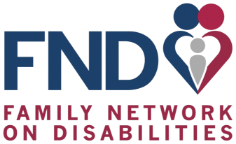INformation Hub
TRANSITION: Employment Resources
TRANSITION: Employment Resources
A RAISE Center Resource Collection
Funding of Assistive Technology Series — Work, Assistive Technology and
State Vocational Rehabilitation Agencies
A Partner Resource | This piece from NDRN’s Senior Staff Attorney, Ron Hager, outlines the Vocational Rehabilitation Agency’s obligation to fund AT to support employment preparation.
ODEP’s #ApprenticeshipWorks Video Series Wins MarCom Gold Award
This video series features apprentices with and without disabilities (Recruits) and their apprenticeship sponsors (Sponsors) in high-growth industries like information technology, healthcare, and marine engineering.
Getting and Keeping the First Job
Competitive employment is the cornerstone of a successful transition to adult living for youth with disabilities. In this workshop, co-presented by Transition Specialists from PACER and Vocational Rehabilitation Services (VRS), youth and parents will learn about preparing for and keeping a job.
Vocational Rehabilitation (VR): A Young Adults Guide
The information in this guide explains how young adults with serious mental health conditions can take advantage of the VR services in their state.
Talking about Disability Disclosure
This blog post from the Job Accommodation Network discusses reasons why you may need to disclose your disability to a potential employer and how doing so may help you succeed in the workplace.
Introducing Vocational Rehabilitation Services: Simply Said
This short Simply Said video teaches individuals how their local Vocational Rehabilitation Services (VRS) counselor can help them be successful at school, at work, and in the community.
Employment Page from PACER
Provides 8 informative videos featuring individuals’ personal stories in addition to professionals’ advice and information on a variety of topics including Employment Supports, VR Services, Disability Disclosure, and more.
Get the Job … Keep the Job! (video, 26 minutes)
This open-captioned youth work readiness video from the RCIL (Regional Center for Independent Living) Departments of Youth Leadership and Employment was made by youth with disabilities for youth with and without disabilities. It provides an overview of the right and wrong ways to apply for a job and give an interview; as well as how to request reasonable accommodations, and how to KEEP your job.
Work Early, Work Often: Parents/Caregivers of Young Adults with Disabilities
Part of a video series created by the Youth Transitions Collaborative that highlights the importance of work and work-based experiences in an individual’s transition to adulthood, particularly for young adults with disabilities. In this video, watch a powerful story unfold as a mother describes “letting go” when her son entered the world of work.
Essential Skills to Getting a Job: What Young People with Disabilities Need to Know
This in-depth survey of 461 business leaders finds that younger workers frequently lack “soft” skills, which include: professionalism or work ethic, oral and written communication, teamwork and collaboration skills, and critical thinking or problem-solving skills.
Executive Function Skills at Work: How Technology Can Help
This brief information sheet explores some of the executive function skills that impact job tasks and how technology can help parents and individuals learn about tools and strategies for time management, completing tasks, and organizing.
Getting Started: Executive Function Skills at Work
This step-by-step guide provides an overview of tools and strategies for executive function skills used in the work place. Youth can read about time management, motivation, following directions, organizing work space and information, remembering appointments and tasks, and focus and attention.
Pre-employment Transition Services
This web page from Workforce Innovation Technical Assistance Center focuses on The Workforce Innovation and Opportunity Act (WIOA) amendment of the Rehabilitation Act of 1973 that requires vocational rehabilitation (VR) agencies to set aside at least 15% of their federal funds to provide “pre-employment transition services” to “Students with Disabilities who are eligible or potentially eligible for VR services.” The page is comprised of several sections on pre-employment transition services, including information on promising practices; a literature review; training links; laws, regulations, and policy; FAQs, and more.
Handheld Technology Supports and Transition to Employment
Focused on young adults with disabilities who might have difficulty with learning job responsibilities and expectations. This webinar from Center on Technology and Disability discusses how smartphones can be used to support work skills and teaches techniques on how handheld technology can help when navigating the transition to employment.
#ApprenticeshipWorks Video Series
This video series features apprentices with and without disabilities (Recruits) and their apprenticeship sponsors (Sponsors) in high-growth industries like information technology, healthcare, and marine engineering. These apprentices and their sponsors show how #ApprenticeshipWorks for them and how it can work for other job seekers and businesses across the country.
Handheld Technology Supports and Transition to Employment
Focused on young adults with disabilities who might have difficulty with learning job responsibilities and expectations. This webinar from Center on Technology and Disability discusses how smartphones can be used to support work skills and teaches techniques on how handheld technology can help when navigating the transition to employment.
The Work Site (Ticket to Work)
The Ticket to Work program is a free and voluntary program that can help Social Security beneficiaries go to work, get a good job that may lead to a career, and become financially independent, all while they keep their Medicare or Medicaid. The Ticket to Work program is also available in ASL.
SOURCE ARTICLE: Center for Parent Information & Resources
Give us a call at (727) 523-1130 or (800) 825-5736 or request a callback by clicking below.
311 South Missouri Ave, Clearwater, FL 33756
(727) 523-1130
(800) 825-5736

